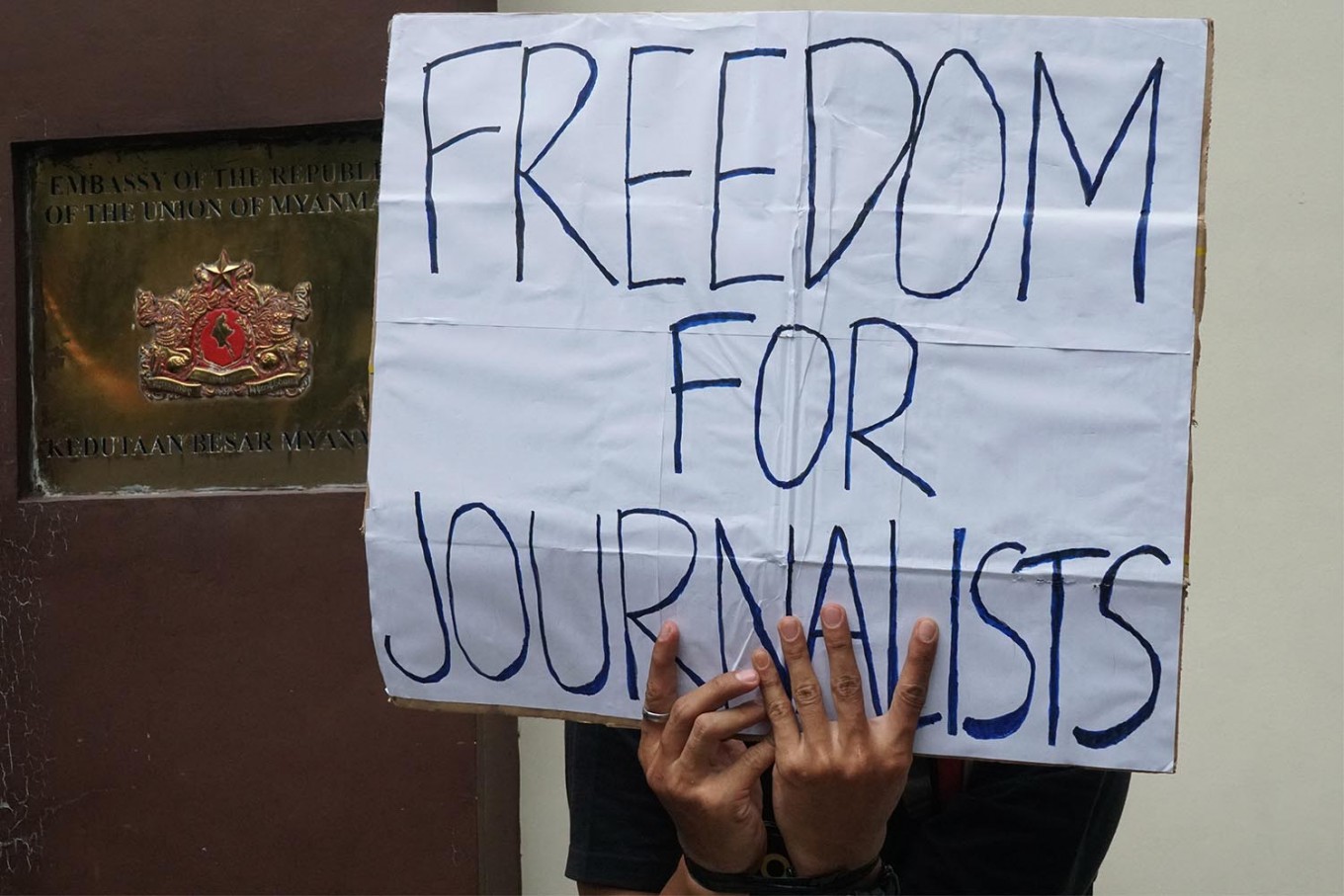Popular Reads
Top Results
Can't find what you're looking for?
View all search resultsPopular Reads
Top Results
Can't find what you're looking for?
View all search resultsMedia labor unions needed more than ever in precarious times: Journalists
The presence of a workers’ union in media companies has helped journalists face the risks of job losses during the pandemic, journalists from different media outlets said in a recent discussion.
Change text size
Gift Premium Articles
to Anyone
J
ournalists have called on fellow reporters and media workers to band together and form unions to stand up for their rights and welfare, especially during the COVID-19 crisis, which has prompted media companies to take drastic measures to cut costs.
The presence of a workers’ union in media companies has helped journalists face the risks of job losses during the pandemic, journalists from different media outlets said in a recent discussion.
Ricky Yudhistira of The Jakarta Post’s Employee Council said the council helped create a level playing field with management in the health crisis, during which lay-off schemes had been used as ways for companies to cope with the pandemic-induced economic fallout.
“At the Post, we have a ‘town hall’ tradition where employees can express their opinions and demands to the management in a forum,” Ricky said in a virtual discussion held by the Alliance of Independent Journalists (AJI) on Friday.
According to an AJI report in October, some media companies do not involve dialogue in solving labor disputes and instead lay off their employees without prior notice or explanations on the indicators used to determine the layoffs.
Setyo Saputro from viva.co.id’s Viva Workers Solidarity said establishing a workers union was the only way for workers to be able to deliver their concerns to their company in an equal manner.
“People always think of a union as a rebellious group, but our true motivation is to be a partner or have an equal position with the management,” he said.
Read also: Journalists face risk of COVID-19 infection, pay cuts and job losses
Legal Aid Institute for the Press (LBH Pers) attorney Rizki Yudha Prawira echoed Setyo’s sentiment, saying there was a power imbalance between the employer and employee as the employer held all the capital, putting the worker in a position that was vulnerable to exploitation.
Setyo stressed that many journalists were still not aware of their vulnerable position.
“I think it’s quite an issue that some journalists and other white-collar workers do not acknowledge themselves as laborers; that sometimes they undermine the importance of a labor union. I want my fellow journalists to know that as long as we don’t own the company, we are laborers,” he said.
Meanwhile, Restu Diantiana Putri of Tirto’s Association of Workers said that even though Tirto had not cut employees’ wages, the union was ready to prevent it from happening.
She added that during the pandemic, the association had pushed Tirto management to apply a full work-from-home policy for its journalists as a form of protection from coronavirus transmission.
As Restu considered Tirto a new and growing media outlet, she highlighted the importance of establishing labor unions not only in big companies but also in small ones.
“Normalize creating labor unions in small companies because there’s always the potential for conflict in any company, including media companies,” she said.
AJI reported that 242 journalists in Indonesia tested positive for COVID-19 from March to September.
Several media companies, including the Post, have reportedly taken measures to minimize costs, such as cutting wages, postponing salary payments and laying off employees. Last month, the Post’s management offered voluntary severance packages for its employees. From August until Nov. 12, at least 25 editorial staff members have resigned amid uncertainties of the management’s long-term plan.










